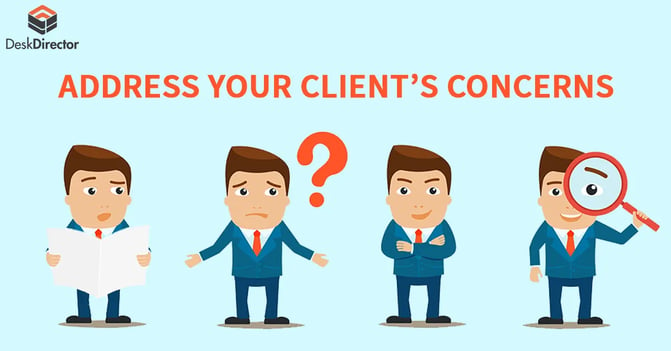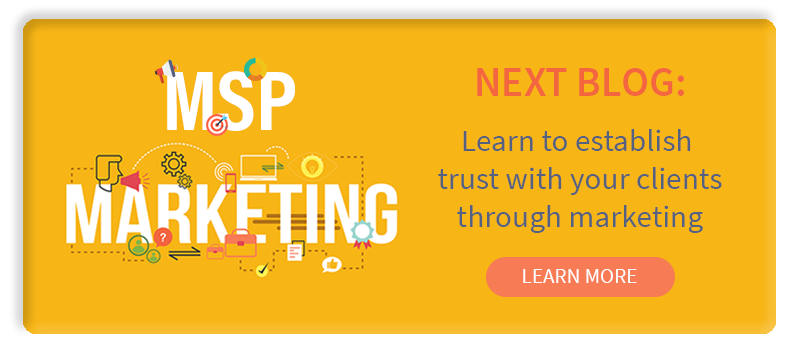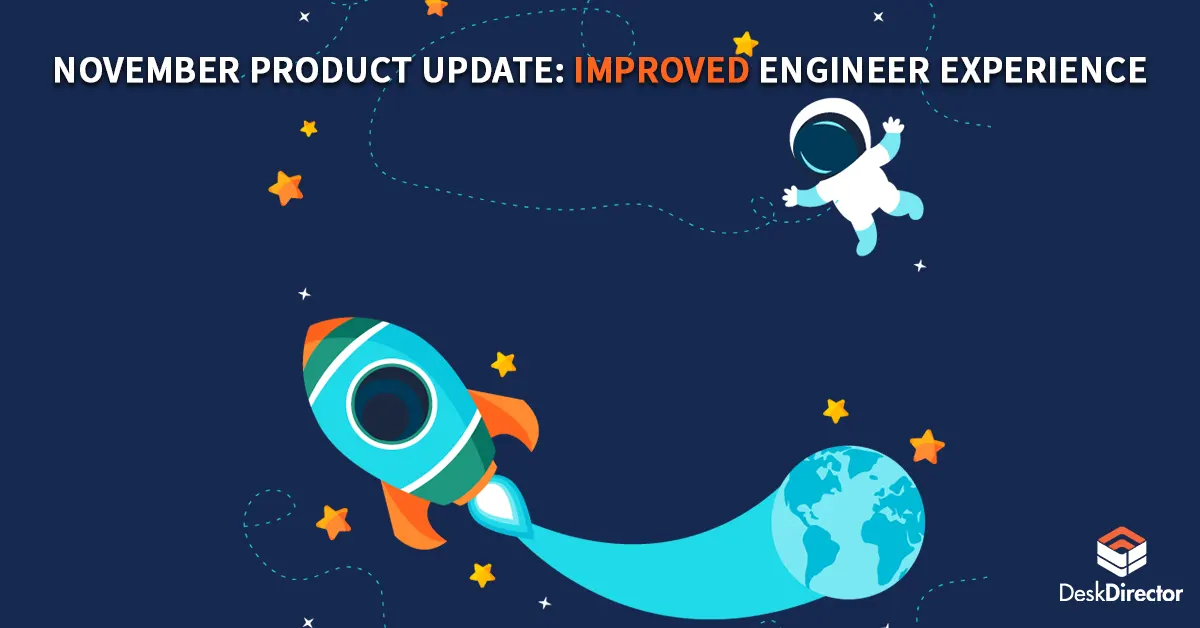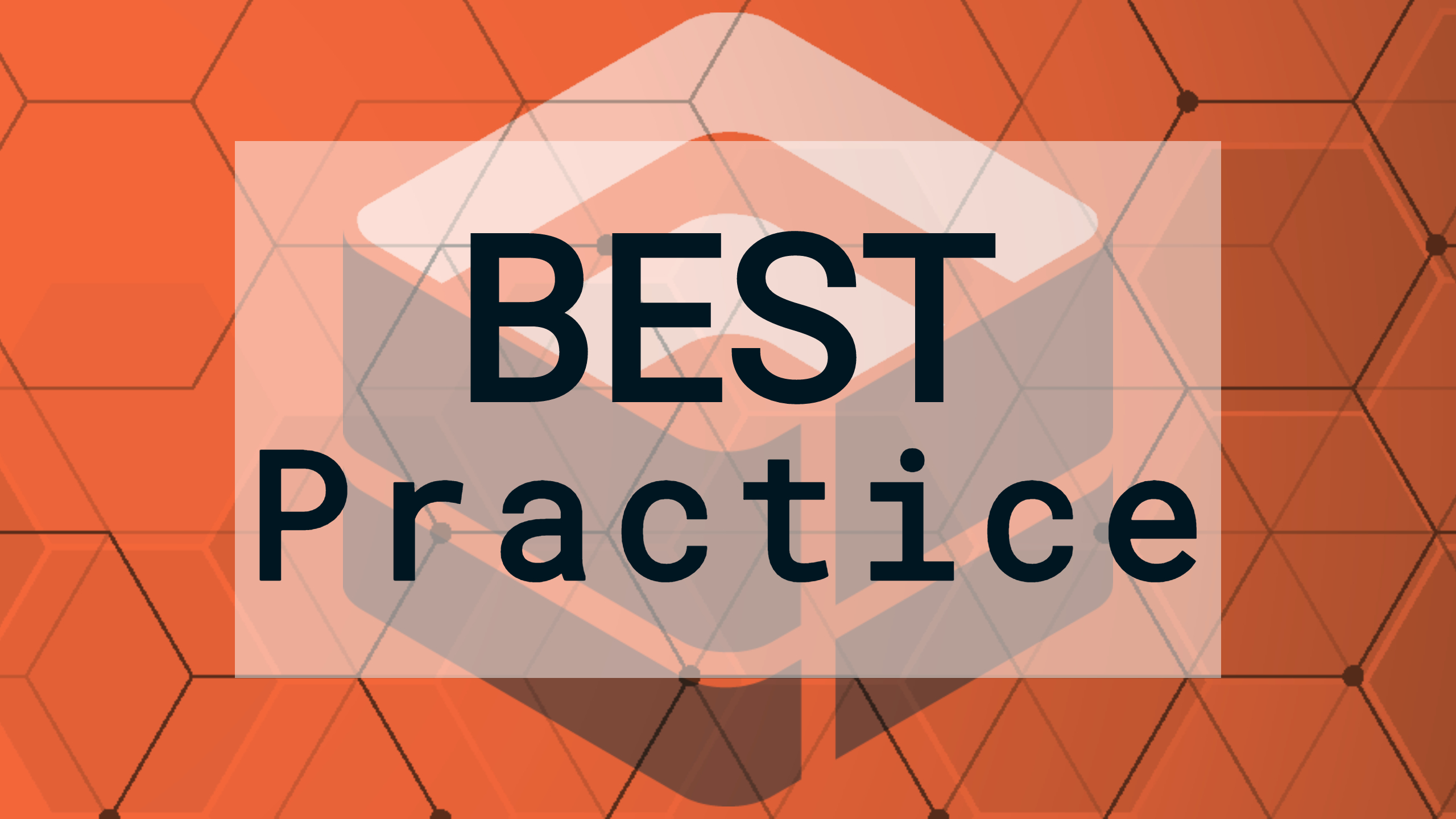
The MSP industry is unstoppable, with the market size expected to grow to USD $527.84 billion by 2022. According to the Harvard Business Review, 57% of organizations view IT as an investment that drives innovation and growth. The industry is only a decade old and filled with great and not-so-great providers. The exceptional MSPs are differentiating themselves by giving their customers compelling IT support options.
Then, there are the other 43% who avoid using a managed service provider because of their misconceptions. Next time you hear from one of these – share this blog with them and bust the myths. We’ve included two points of view here – your clients and yours, so that you can tackle them in the best way possible.
Customer concern: Inferior operational quality
Your audience is afraid to give you control. They think you’re not going to care about the technology or data the same way their internal team does. They are worried about their performance suffering if they outsource critical operations. A slow response to downtime will incur a heavy loss for their business.
Response: Specialists vs Generalists
The technology landscape has grown from a centralized system managed by IT professionals to a web of specialized technologies that can sometimes exist beyond the expertise of IT. You need to talk about your technical department and knowledge. Show them how using specialists will increase efficiencies in the system. According to a study by Cisco, their offering to MSPs increased client efficiency by 50 – 60%. As well as leveraging your know-how, inform your audience about the support options you have. If you’re available 24/7 for maintaining systems, there will be minimal downtime.
Customer concern: More vulnerable to cyber threats
Your customers believe giving you their data will leave them exposed to cyber crime attacks. They fear that the data will be in front of strangers and can be misused. They also worry about a possible system breach. What they don’t understand is that cyber-attacks are unavoidable and the average cost to fix the damages and recover data can be $879,582. Also Microsoft says, on average an attacker resides for 146 days within a network before detection. With their IT team busy on daily tasks, it’s difficult to investigate the system closely.
Response: Cybersecurity is priority 1
MSPs work every day to keep their customers’ data secure. You already know protecting client information is an integral part of your job and any breach would lead to you losing face in the industry. Tell your potential clients that you are not a reactive MSP when it comes to cybersecurity, but a proactive one.
Small to medium businesses underestimate the vulnerability of their systems. While tending to day-to-day issues, they tend to fall behind the current trends and security patches, regulations, application updates and configuration changes.. An MSP has specialists who take care of the system, this not only results in minimizing the risk to threats, but also downtime in general. It is important for clients to understand that no one can give them 100% protection, but you can lower the odds of a successful attack dramatically. Tips on how to sell cybersecurity solutions.
Customer concern: MSPs will increase their expenses
They will have to hire additional help for tasks being performed by the current staff – which they think is a waste of money. They would have to pay for operational costs and the savings is a vague promise. They often believe in the break/fix in the model. Getting an MSP could remarkably increase their cost in the short run and disturb their budgeting for years.
Response: Long-term cost savings
The internal IT teams have a budget of up to 65% for maintenance – according to a study done by Cisco, MSPs reduces this cost by 40% and this gives time for their internal team to be more active and focused on business-related issues. Customers believe in the ‘Break/Fix’ model, you have to make them realize the cost of fixing and replacing equipment, expediting services and lost productivity. Focus on brand damage when business operations are out for a brief period and this should get the attention you want. If you have data/case studies which have proved to save money – present it to them. It will make them re-think their strategies and plans.
Customer concern: Cookie-cutter solutions
Standardization is the biggest curse in the MSP industry. They think you’ll provide them with solutions you have, not the ones they need. Whereas, their internal IT team is dedicated to their systems – provide what they need and want. They don’t want to be stuck in a web of solutions which they didn’t need in the first place.
Response: Service customization
The last thing you should be doing is forcing a solution your customers don’t need. You need to show them that you are not a one-for-all service provider, but someone who adds value to their business. If they don’t need an upgrade in their IT infrastructure, don’t push them to do so. One of the ways you can customize your service is–by supplying portal which resonates to their needs.
Wondering how a portal can help in service customization? Read here.
You need to put client needs before your own, yes, you need to be profitable in your business too, but you also need to form a long-lasting relationship based on trust.
Your customers need to trust you, as they’ll be doing their research and talking to other people in the industry. The last thing you would want is your advice being seen as a ploy to get more money. Initially, you might want to provide them with proof like data, customer references and case studies to support your claim, once they trust you – you will not need to prove yourself. Clearing this concerns will help you grow your business and win impressive clients.









